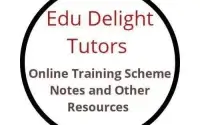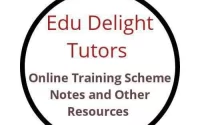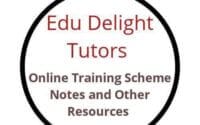Revision Test Habits Health Habits Kindergarten Second Term Lesson Notes Week 11
Revision Lesson Plan for Kindergarten: Health Habits
Subject: Health Habits
Class: Kindergarten
Term: Second Term
Week: 11
Age: 5 Years
Topic: Revision of Health Habits (Toileting, Eating, Teeth, and Eyes)
Sub-topic: Review of Key Health Habits
Duration: 40 minutes
Behavioral Objectives:
By the end of the lesson, pupils should be able to:
- Recall and demonstrate proper toilet hygiene practices.
- Identify and explain good and bad eating habits.
- Demonstrate how to care for their teeth and eyes.
- Show an understanding of the importance of personal hygiene.
Keywords:
- Toilet
- Eating habits
- Teeth care
- Eye care
- Hygiene
Set Induction:
- Show a picture of a clean and dirty toilet and ask the pupils, “Which one is good for us?”
- Engage in a short conversation about the importance of cleanliness and hygiene.
Entry Behavior:
- Pupils already know basic health habits like washing hands and brushing teeth from previous lessons.
Learning Resources and Materials:
- Pictures of toilets, teeth, and eyes.
- Toilet model or chart with hygiene steps.
- Toothbrush, toothpaste, and eye protection (e.g., sunglasses).
- Flashcards for good and bad eating habits.
Building Background/Connection to Prior Knowledge:
- Connect the lesson to previous discussions about using the toilet, eating habits, and personal hygiene. Ask questions like, “What do you do after using the toilet?” and “Why is it important to brush our teeth?”
Embedded Core Skills:
- Personal development and hygiene.
- Critical thinking and decision-making.
- Cooperation in group activities.
Learning Materials:
- Flashcards with illustrations of good and bad habits.
- Toothbrushes and toothpaste for demonstration.
- Posters with hygiene steps.
- Audio-visual materials (video clips on hygiene habits).
Reference Books:
- Lagos State Scheme of Work for Kindergarten Health Habits
- “Health Habits for Kids” by Dr. Tom S.
- www.kidshealth.org
Instructional Materials:
- Flashcards
- Visual aids (charts, posters)
- Toothbrushes and toothpaste for demonstration
- Small mirror for eye care demonstration
Content:
- Toilet Hygiene:
- Definition: Toilet hygiene refers to the cleanliness practices we follow after using the toilet.
- Explanation:
- Clean the toilet seat with tissue before sitting.
- Always flush after use.
- Wash your hands with soap and water.
- Dry your hands with a towel.
- Examples:
- Always flush after using the toilet.
- Wash your hands before and after using the toilet.
- Use toilet tissue to clean yourself.
- Eating Habits:
- Good Eating Habits:
- Use clean plates and cutlery.
- Wash hands before eating.
- Don’t talk while eating.
- Take a little food at a time.
- Bad Eating Habits:
- Eating with dirty hands.
- Talking with food in your mouth.
- Playing while eating.
- Good Eating Habits:
- Teeth Care:
- Uses of Teeth:
- Teeth are used for biting, chewing, and tearing food.
- Teeth Care Tips:
- Brush your teeth twice daily.
- Use a toothbrush and toothpaste.
- Visit the dentist regularly.
- Uses of Teeth:
- Eye Care:
- Eye Care Tips:
- Wash your face and eyes daily.
- Wear sunglasses to protect your eyes from the sun.
- Avoid rubbing your eyes with dirty hands.
- Eye Care Tips:
Presentation:
- Review the topic on toilet hygiene:
- Ask pupils to recall steps for proper toilet hygiene.
- Demonstrate with a chart or pictures.
- Discuss good habits (flushing, washing hands) and bad habits (leaving the toilet dirty).
- Review good and bad eating habits:
- Show flashcards with examples of good and bad eating habits.
- Encourage pupils to act out the habits (e.g., talking while eating, washing hands before eating).
- Review teeth care:
- Demonstrate proper brushing techniques using a toothbrush.
- Discuss the importance of brushing twice a day.
- Review eye care:
- Show the pupils sunglasses and explain how they protect their eyes.
- Ask the pupils to demonstrate cleaning their face and eyes with water.
Teacher’s Activities:
- Revise key hygiene practices with the pupils using visuals.
- Encourage students to demonstrate the correct behavior (e.g., washing hands, brushing teeth).
- Correct any misunderstandings during the discussion.
- Provide individual feedback during activities.
Learners’ Activities:
- Discuss and demonstrate toilet hygiene steps.
- Show good and bad eating habits using flashcards.
- Demonstrate proper teeth brushing and eye care.
- Participate in group discussions and activities.
Assessment:
Evaluation Questions:
- What should you do before eating?
- Name one good habit when using the toilet.
- Why should we brush our teeth?
- How many times a day should we brush our teeth?
- What should you do after using the toilet?
- Name one thing you should not do when eating.
- What do we use our teeth for?
- How can we protect our eyes from sunlight?
- What should you use to clean your hands before eating?
- What is the importance of washing your hands after using the toilet?
Conclusion:
- Review the key points of the lesson.
- Walk around and give individual feedback to the pupils.
- Encourage pupils to practice good hygiene habits daily.
SEO Elements:
- Captivating Title: Health Habits for Kindergarten: Toilet, Eating, Teeth, and Eyes
- Focus Keyphrase: Health Habits for Kindergarten
- SEO Title: Health Habits for Kindergarten: Toilet, Eating, Teeth, and Eyes
- Slug: health-habits-kindergarten-toilet-eating-teeth-eyes
- Meta Description: Help your Kindergarten students learn essential health habits like toilet hygiene, good eating habits, and proper care for teeth and eyes with this engaging lesson plan.
Week 11: Revision of All Topics Covered
Part A: Review and Revision (20 FAQs with Answers)
- Q: Why is it important to wash your hands before eating?
A: Washing your hands helps remove germs and keeps you healthy. - Q: What is the first thing you should do when you use the toilet?
A: You should always wash your hands before using the toilet. - Q: Why should you brush your teeth twice a day?
A: Brushing twice a day helps prevent tooth decay and keeps your teeth clean. - Q: What are some good eating habits?
A: Use clean plates, wash your hands before eating, and eat small amounts at a time. - Q: What is one bad eating habit?
A: Talking with your mouth full is a bad eating habit. - Q: How do you care for your teeth?
A: Brush your teeth twice daily and visit the dentist regularly. - Q: What should you do after using the toilet?
A: You should wash your hands after using the toilet. - Q: Why is it important to protect your eyes from the sun?
A: Protecting your eyes from the sun can help prevent eye damage. - Q: What is one thing you should never do in the toilet?
A: Never eat food while in the toilet. - Q: How can you protect your teeth from damage?
A: Avoid eating too much sugar and brush your teeth regularly. - Q: Why should you flush the toilet after use?
A: Flushing the toilet helps keep it clean and free from germs. - Q: What should you do before sitting on the toilet?
A: Always clean the toilet seat before sitting. - Q: What is one bad habit while eating?
A: Sneezing or coughing on food is a bad habit. - Q: How can you keep your hands clean while eating?
A: Always wash your hands before and after eating. - Q: Why should you never eat with dirty hands?
A: Dirty hands carry germs that can make you sick. - Q: How do you know if a plate is clean?
A: Check if the plate looks clean and has no leftover food on it. - Q: Why is it important to drink water while eating?
A: Drinking water helps you swallow food easily and keeps you hydrated. - Q: What should you do if you drop food on the floor?
A: Don’t eat it. Clean the area and get new food. - Q: What should you do after eating?
A: Wash your hands and clean your mouth. - Q: How should you sit while eating?
A: Sit down properly at a table and avoid playing or running around while eating.
Part B: Objective Questions (20 Fill-in-the-Blank Questions)
- You should always wash your __________ before eating.
a) Feet
b) Hands
c) Hair
d) Shoes - It is important to brush your __________ every day.
a) Hair
b) Teeth
c) Clothes
d) Nails - __________ your hands after using the toilet is very important.
a) Dry
b) Wash
c) Clean
d) Soak - Good eating habits include using __________ plates.
a) Clean
b) Plastic
c) Broken
d) Dirty - You should never eat __________ hands.
a) Clean
b) Wet
c) Dirty
d) Dry - It is important to __________ the toilet after use.
a) Close
b) Flush
c) Open
d) Clean - The first thing to do after using the toilet is to __________ your hands.
a) Wipe
b) Wash
c) Dry
d) Fold - You should eat __________ bites at a time.
a) Many
b) Little
c) Big
d) Huge - Brushing your teeth helps to prevent __________.
a) Tooth decay
b) Cough
c) Cold
d) Fever - You should never __________ with food in your mouth.
a) Laugh
b) Talk
c) Smile
d) Chew - To care for your teeth, use a __________.
a) Towel
b) Spoon
c) Toothbrush
d) Comb - __________ protects your eyes from the sun.
a) Sunglasses
b) Hat
c) Shoes
d) Gloves - __________ should never be done while eating.
a) Reading
b) Talking
c) Chewing
d) Smiling - You should always __________ your hands before eating.
a) Wash
b) Dry
c) Rub
d) Wipe - Bad eating habits include __________ with dirty hands.
a) Eating
b) Sleeping
c) Cooking
d) Dancing - You should brush your teeth __________ a day.
a) Once
b) Twice
c) Three times
d) Four times - You should use __________ to wash your hands.
a) Soap
b) Oil
c) Water
d) Tissue - It is good to sit properly while __________.
a) Playing
b) Eating
c) Sleeping
d) Running - __________ is one thing you should always do after eating.
a) Wash hands
b) Go to sleep
c) Drink soda
d) Brush hair - You should not __________ food on the floor.
a) Drop
b) Eat
c) Throw
d) Smell
Part C: Theory Questions (20 Simple Short Answer Questions)
- Why do you need to wash your hands before eating?
- What are some good habits to follow while eating?
- Why is it important to brush your teeth regularly?
- What should you do after using the toilet?
- How do you protect your eyes from the sun?
- What is one bad habit while eating?
- How can you care for your teeth?
- Why should you always wash your hands after using the toilet?
- How should you sit while eating?
- Why is it important to use clean plates when eating?
- What should you do if you spill food on the floor?
- What is the first thing to do after using the toilet?
- What should you do if you have dirty hands before eating?
- Why should you not eat with dirty hands?
- How often should you brush your teeth?
- What is one thing you should never do in the toilet?
- Why is it good to eat small bites at a time?
- What can happen if you eat too much at once?
- Why should you not talk while chewing food?
- What should you do to take care of your teeth?
Part D: True or False Questions (20 Statements)
- You should always wash your hands before eating. (True/False)
- Talking with food in your mouth is a good habit. (True/False)
- It is important to brush your teeth only once a day. (True/False)
- You should wash your hands after using the toilet. (True/False)
- It is good to eat while playing. (True/False)
- You should never eat with dirty hands. (True/False)
- You should always flush the toilet after use. (True/False)
- It is fine to read while on the toilet. (True/False)
- You should always use clean plates while eating. (True/False)
- You should brush your teeth with a toothbrush. (True/False)
- It is important to protect your eyes from the sun. (True/False)
- You should eat with your mouth full. (True/False)
- You should always sit down while eating. (True/False)
- It is okay to sneeze on your food while eating. (True/False)
- You should wash your hands before eating. (True/False)
- It is a good idea to eat while standing. (True/False)
- You should brush your teeth twice a day. (True/False)
- It is okay to leave food on the toilet floor. (True/False)
- You should always use soap to wash your hands. (True/False)
- You should eat too much food at once. (True/False)
Part E: Fill-in-the-Gaps Questions (20 Questions)
- Always __________ your hands before eating.
- It is important to brush your __________ twice a day.
- You should always __________ the toilet after use.
- It is bad to eat with __________ hands.
- After using the toilet, you should always __________ your hands.
- Never talk __________ chewing food.
- You should clean your __________ before sitting on the toilet.
- Eating __________ bites at a time is healthy.
- You should brush your teeth with a __________.
- Always eat with a __________ mouth.
- Never eat __________ food from the floor.
- You should wash your __________ before eating.
- Protect your __________ from the sun with sunglasses.
- It is good to __________ your hands after eating.
- Eating too much at once can cause __________.
- Sitting __________ while eating is a good habit.
- Always use a __________ plate when eating.
- You should drink __________ while eating.
- Never eat __________ food in the toilet.
- Wash your hands with __________ and water.
Related
Related Posts


Harrufan Cigaba Hausa Primary 1 First Term Lesson Notes Week 3


Greeting Etiquette in Yoruba Culture (Asa Ikini ati Idahun ni Ile Yoruba) Yoruba Kindergarten First Term Lesson Notes Week 4


Correct Sitting Posture Physical Development Kindergarten Second Term Lesson Notes Week 2
About The Author
Edu Delight Tutors
Am a dedicated educator with a passion for learning and a keen interest in technology. I believe that technology can revolutionize education and am committed to creating an online hub of knowledge, inspiration, and growth for both educators and students. Welcome to Edu Delight Tutors, where learning knows no boundaries.